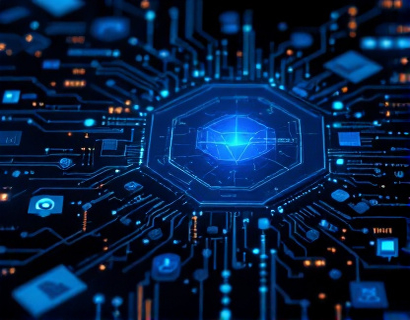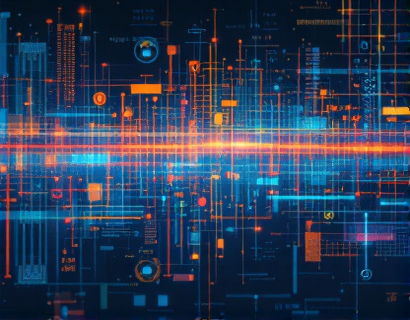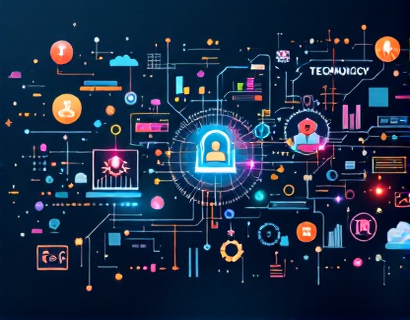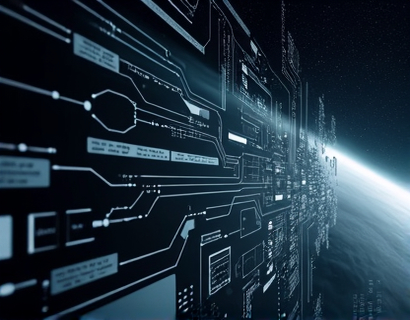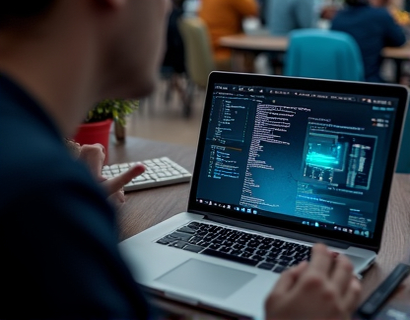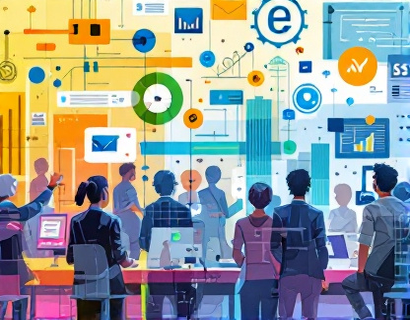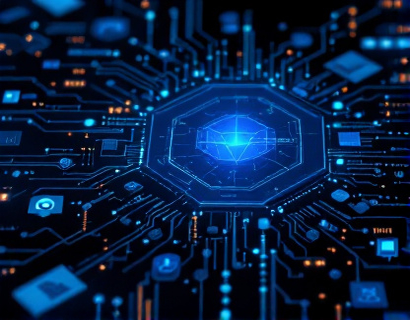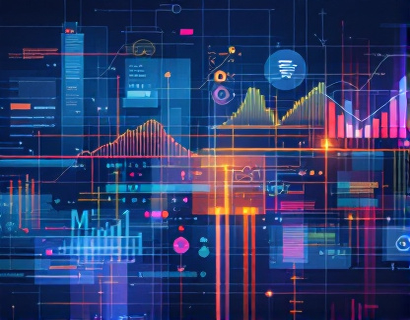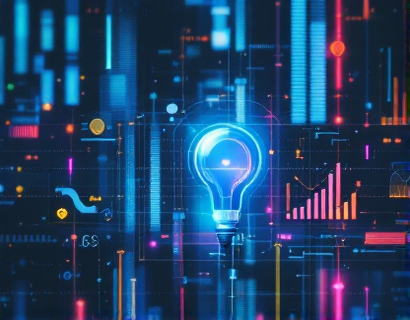Decentralized Productivity: Revolutionizing Business with AI and Crypto Integration
The integration of artificial intelligence (AI) and cryptocurrency is ushering in a new era of decentralized productivity, transforming the way businesses operate and collaborate digitally. This revolution is not just about adopting new technologies but redefining the very foundations of digital workspaces. For tech innovators and early adopters, understanding this convergence is crucial to staying ahead in a rapidly evolving landscape.
Decentralized productivity tools powered by AI and crypto offer a unique blend of security, transparency, and efficiency. These tools leverage blockchain technology to create immutable and tamper-proof records, ensuring that all transactions and collaborations are secure and verifiable. AI enhances these systems by providing intelligent automation, predictive analytics, and personalized user experiences, making complex tasks more manageable and streamlining workflows.
The foundation of this new paradigm lies in blockchain's ability to facilitate trustless interactions. In a traditional centralized system, trust is placed in a central authority to manage and verify transactions. In contrast, blockchain eliminates the need for intermediaries by using a distributed ledger that all participants can access and validate. This not only reduces costs and delays but also minimizes the risk of fraud and errors.
AI, on the other hand, brings a level of intelligence and adaptability that traditional systems lack. Machine learning algorithms can analyze vast amounts of data to identify patterns, predict outcomes, and automate routine tasks. When combined with blockchain, AI can optimize processes in real-time, adapt to changing conditions, and provide insights that drive better decision-making.
One of the key applications of this integration is in the realm of smart contracts. Smart contracts are self-executing contracts with the terms of the agreement directly written into code. They run on blockchain networks and automatically enforce and execute contractual obligations when predefined conditions are met. AI can enhance smart contracts by adding layers of intelligence, such as natural language processing for more complex agreements or predictive analytics to forecast potential issues before they arise.
Decentralized applications (dApps) are another significant outcome of this technological fusion. dApps operate on blockchain networks and use AI to provide advanced functionalities. For instance, a decentralized project management tool can use AI to assign tasks based on team members' availability and expertise, track progress in real-time, and predict project timelines with high accuracy. This level of automation and insight not only boosts productivity but also enhances collaboration among distributed teams.
The benefits of decentralized productivity tools extend beyond efficiency and security. They promote a more democratic and inclusive approach to business operations. In a decentralized system, no single entity has control, which means that power and decision-making are distributed among participants. This democratization can lead to more innovative solutions and a more equitable distribution of resources and opportunities.
Moreover, the use of cryptocurrency in these systems ensures that transactions are transparent and traceable. Cryptocurrencies like Ethereum, which supports smart contracts, and others like Binance Smart Chain and Solana, offer scalable and cost-effective solutions for decentralized applications. The native tokens of these blockchains can serve as incentives for users to participate and contribute to the network, fostering a community-driven approach to productivity.
However, the adoption of decentralized productivity tools is not without challenges. One of the primary hurdles is the technical complexity involved in integrating AI and blockchain. Developers need a deep understanding of both technologies to create robust and user-friendly applications. Additionally, the regulatory landscape for cryptocurrencies is still evolving, and businesses must navigate varying legal requirements across different jurisdictions.
Another challenge is user adoption. Many organizations and individuals are still unfamiliar with blockchain and AI technologies, which can hinder the widespread acceptance of decentralized tools. Education and awareness are crucial to overcoming this barrier. Demonstrating the tangible benefits and ease of use of these tools can help drive adoption and mainstream acceptance.
Despite these challenges, the potential rewards are substantial. Businesses that embrace decentralized productivity can achieve higher levels of security, transparency, and efficiency. AI-driven insights can lead to better strategic decisions and competitive advantages. For instance, a decentralized supply chain management system can use AI to optimize inventory levels, predict demand, and ensure compliance with regulatory standards, all while maintaining an immutable record of transactions.
The future of work is increasingly decentralized, and the integration of AI and cryptocurrency is at the forefront of this transformation. As more companies recognize the value of these technologies, we can expect to see a surge in innovative solutions that redefine productivity and collaboration. For tech innovators and early adopters, the opportunity to lead this revolution is immense, offering a chance to shape the future of digital workspaces.
In conclusion, the merging of AI and cryptocurrency is not just a technological trend but a fundamental shift in how we approach productivity and digital collaboration. By leveraging the strengths of both domains, we can create decentralized tools that are secure, efficient, and intelligent. As we move forward, embracing this new paradigm will be essential for businesses looking to thrive in a rapidly changing world.








